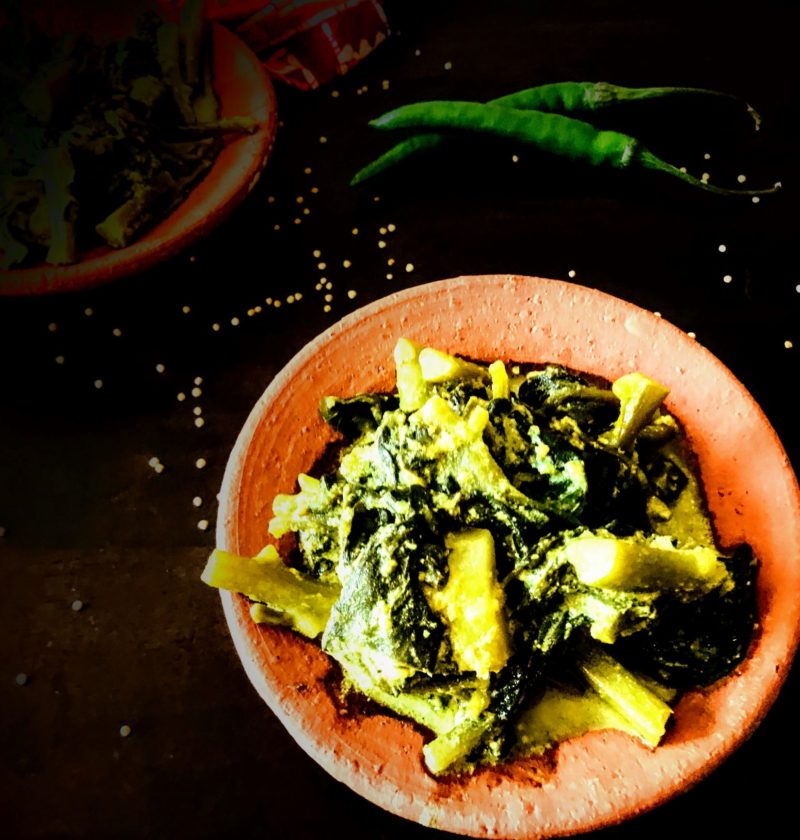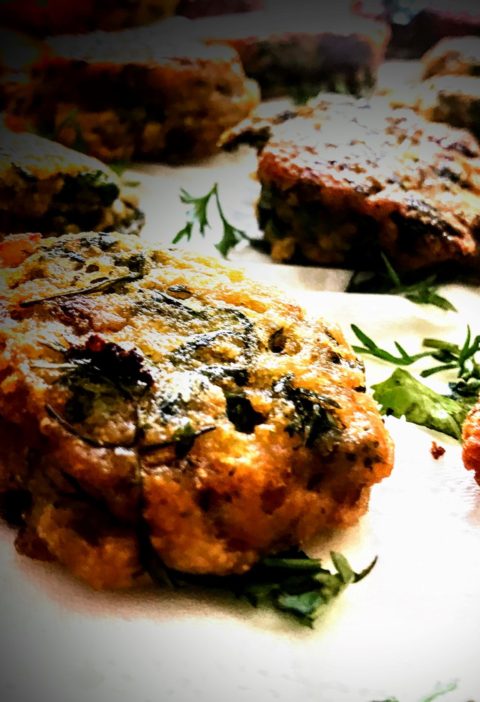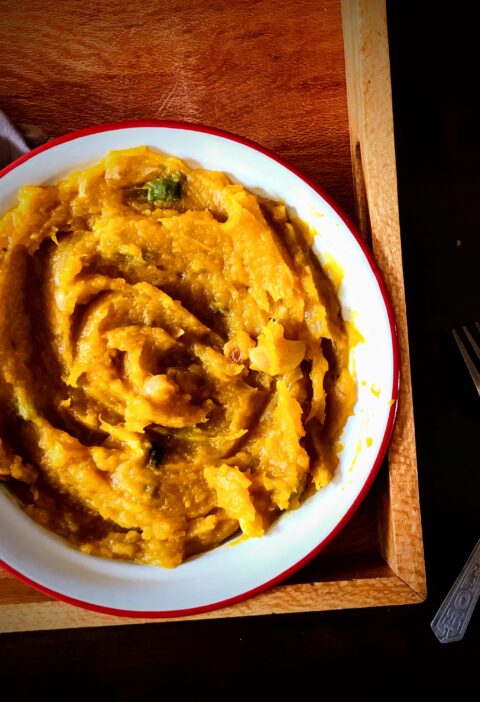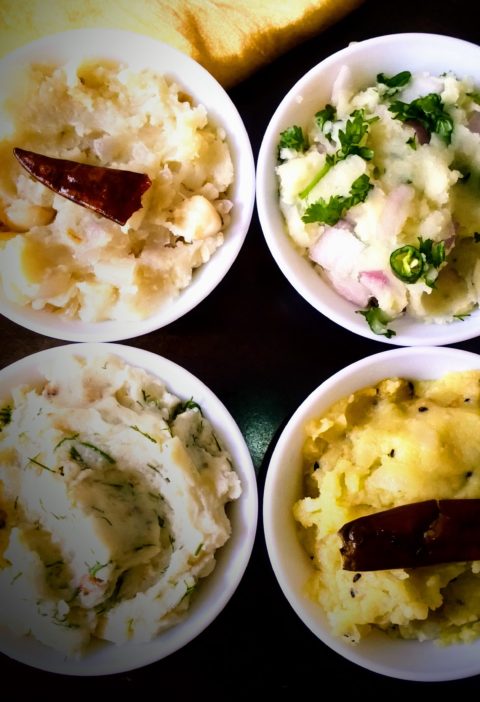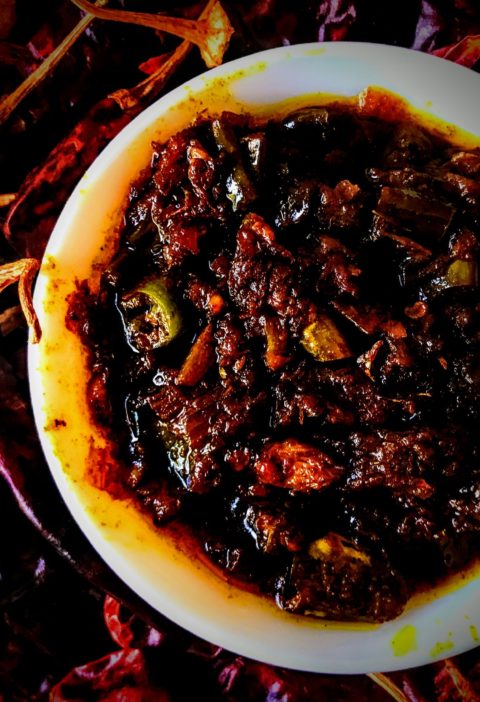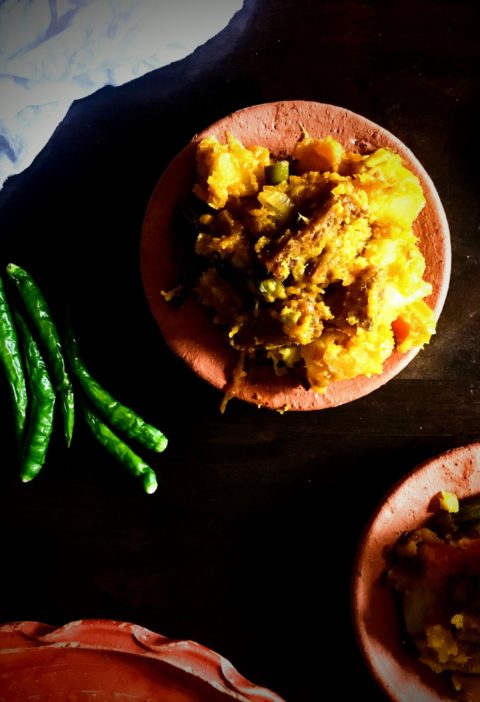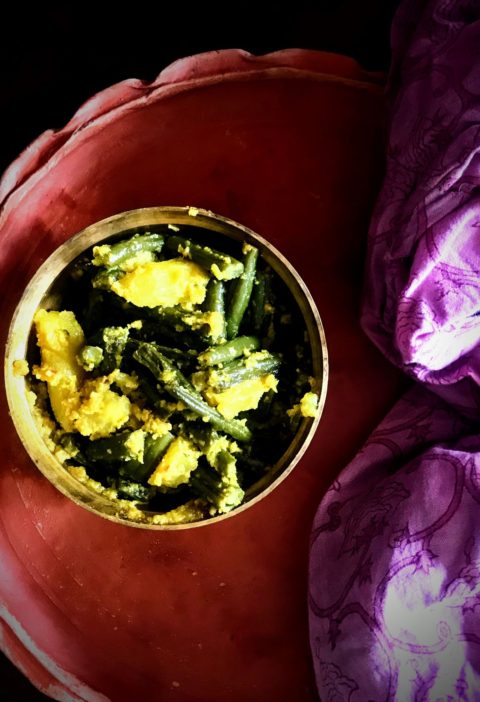Chorchori, not sure who invented the word, but so far it looks like one of the most flexible culinary word, atleast I have come across in my mother tongue ‘Bengali’. Although the internet provides us with lots of variation when it comes to defining Chorchori, and also given the luck of being born in a middle class Bengali family, my encounter with Chorchoris is beyond calculation. However, till now, I will be blank and clueless, if someone asks me to define Chorchori in true terms.
Or probably this is what the word and the dish humble Chorchori means. Something which cannot be limited to one set of ingredients, one style of cooking or one form of taste. Or something which has the capacity to embrace limitlessly, in a way that everything becomes its own. Yes, from Sheem Chorchori to Data Chorchori, from Macher Matha Diye Chorchori to Paanch Mishali Chorchori and to Kumro Chorchori, this Chorchori does not know any limit, and thus allows the cook to happily experiment as per his or her taste with his or her favourite vegetables, without even worrying about being wrong.
Also, not to be ignored, Bengal’s association with Chorchoris goes much beyond a mere umbrella of dishes. This is Chorchori which symbolises Bengal’s abundance and scarcity at the same time. As the combination of many vegetables in one dish reminds the fertile land and hence Bengal’s capacity to produce variety of vegetables. But the inclusion of parts like roots, stem and even fish heads also indicates the no waste cooking philosophy of Bengal, that developed in respond to the economic crisis that time to time Bengal had gone through during British rule.
Well, maybe it’s a mixed emotion. But one thing is for sure, that the changes in political, social and economic scenarios, did help in shaping the region’s incredible cuisine for which the region is best known for. And one such remarkable dish from the repertoire is ‘Shorshe Diye Pui Data Chorchori’ or ‘A Slow Cooked Mishmash Of Basale Leaves & Stalk In Mustard Paste’. Even with least number of ingredients, this ‘Shorshe Diye Pui Data Chorchori’ manages to amuse one’s senses and allows to have a hearty meal without leaving any traces of indigestion or any question of gaining weight.
Check out more Side Dishes Recipe
Recipe: Shorshe Diye Pui Data Chorchori Or A Slow Cooked Mishmash Of Basale Leaves & Stalk In Mustard Paste
Preparation Time: Around 32 minutes Cooking Time: Around 50 minutes on low flame Equipment Used: Bowls, knife, peeler, cutting board, pan & turner and sil batta Yield: Serves 6 small bowls or katoris
Ingredients:
- 500 gms fresh basale leaves or malabar spinach with stalks
- 2 medium sized potatoes
- 1 and ½ tablespoon yellow mustard seeds
- 1 green chilli
- 5 tablespoon mustard oil
- ½ teaspoon turmeric powder
- 1 teaspoon salt
- ¼ teaspoon sugar
Method:
- Separate the basale leaves from the stalks and keep them aside in a bowl
- Cut the stalks to around 3 cm length and keep them aside in a separate bowl
- Rinse the leaves and the stalks once and keep them soaked in water
- Clean the potatoes under running water. Peel and cut them to half wedges and keep them soaked in water
- Add mustard seeds and green chilli to sil batta and grind them to a smooth paste while adding water little by little
- Collect the paste in a small bowl
- Heat a wok and heat oil in the wok once the wok is hot
- Add the potatoes that are cut to half wedges into the wok once the oil is hot
- Add turmeric powder and ½ teaspoon salt
- Stir to mix the ingredients and cook the potatoes on sim for 3-4 minutes till they are semi fried (or semi-cooked)
- Now drain the water from leaves and stalks and add them into the wok
- Add the mustard paste
- Stir and mix the ingredients and let the vegetables (leaves, stalks and potatoes) cook on sim. The leaves and stalks will release water as they get cooked and slowly the water will get evaporated
- Taste and adjust salt and sugar when the liquid reduces to 20%. I have added ½ teaspoon salt and ¼ teaspoon sugar
- Switch off the flame when the gravy reduces to 10%
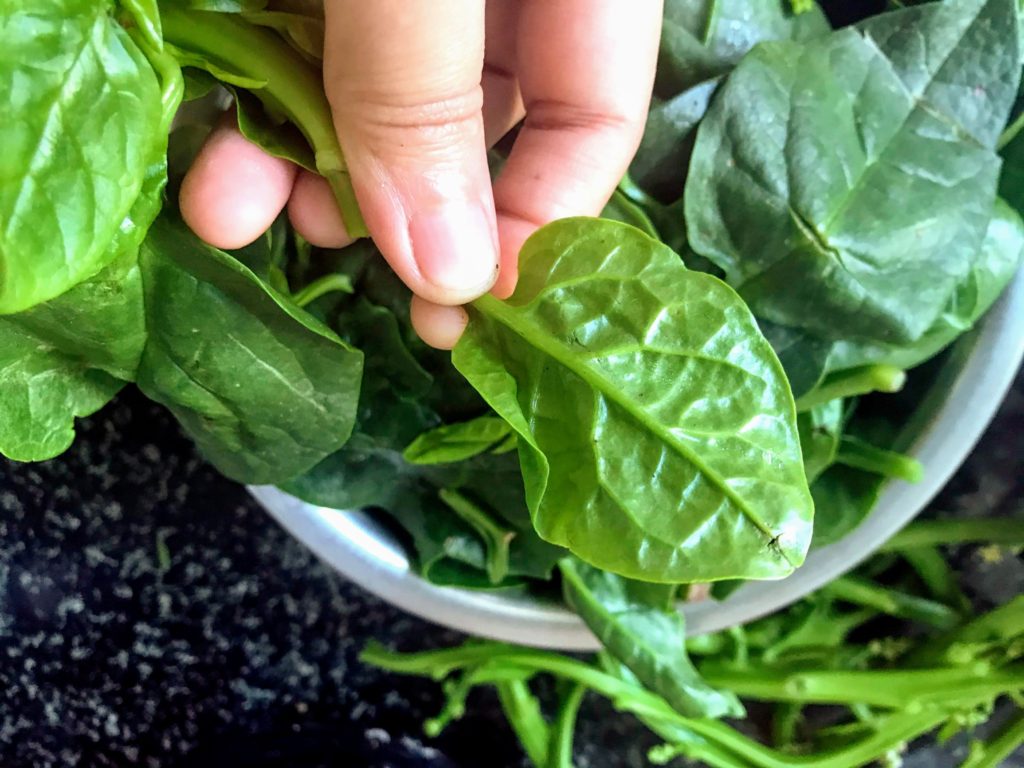
Separate the basale leaves from the stalks.
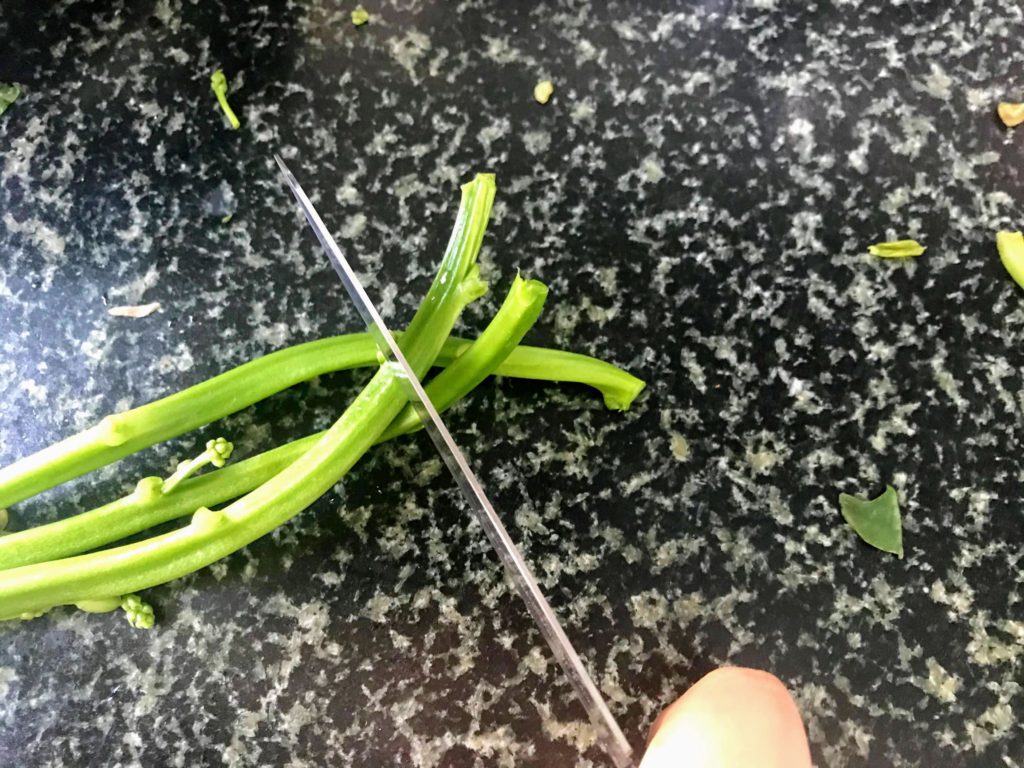
Cut the stalks to around 3 cm length.
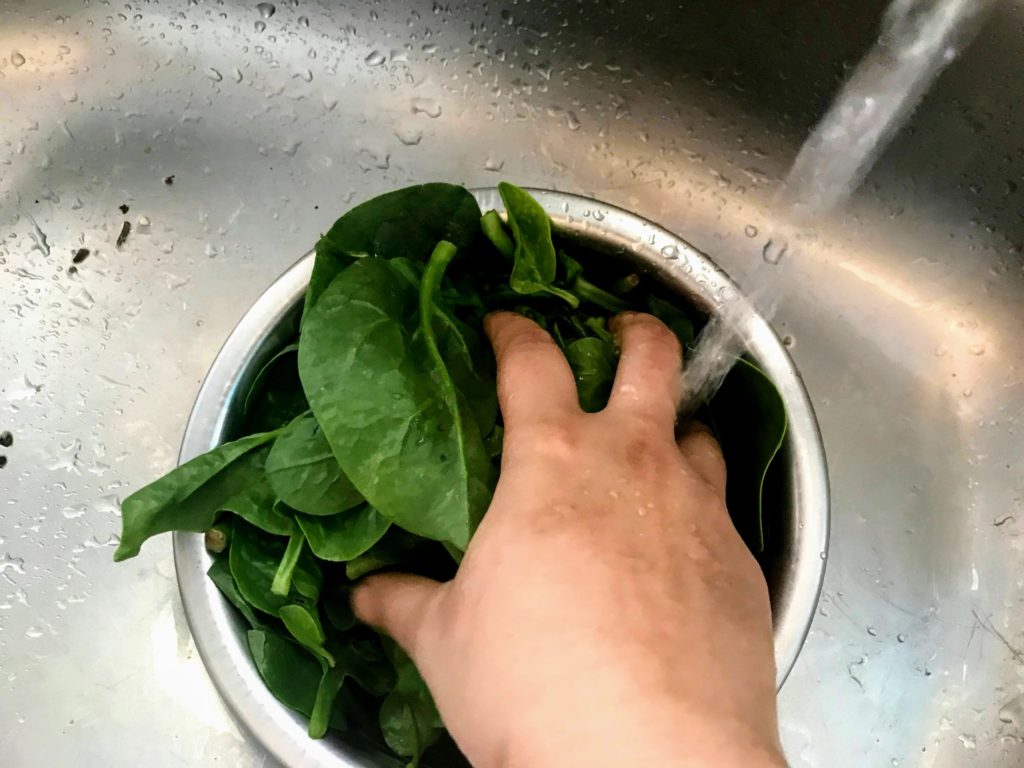
Rinse the leaves and the stalks once.
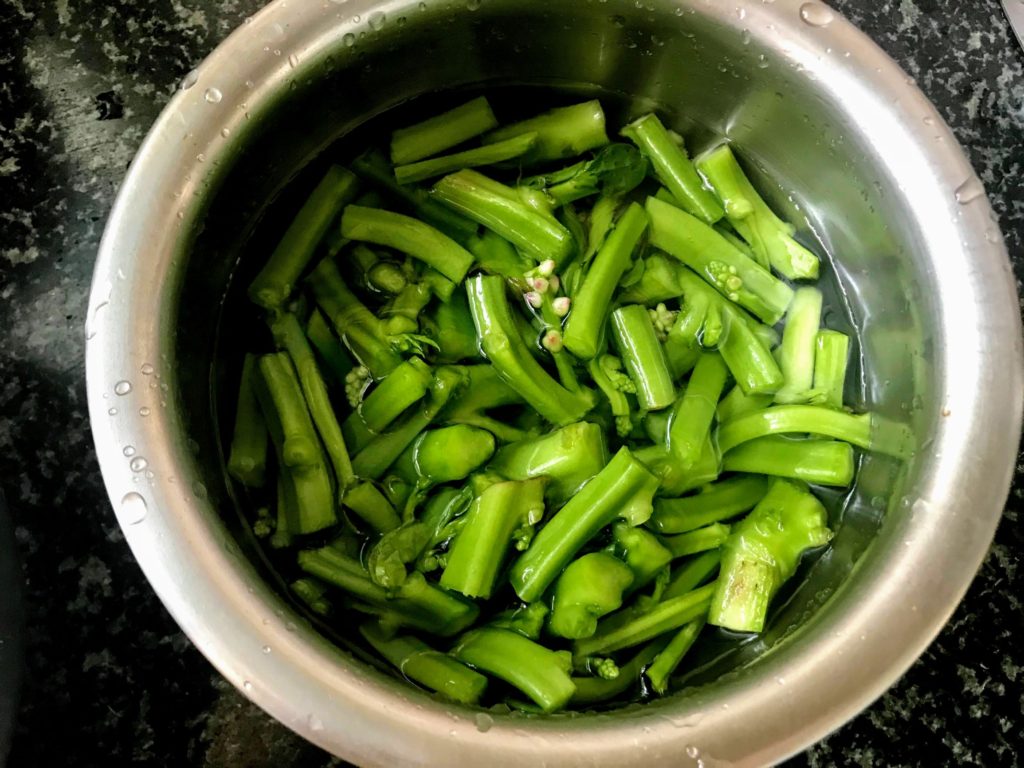
Keep the leaves and stalks soaked in water.
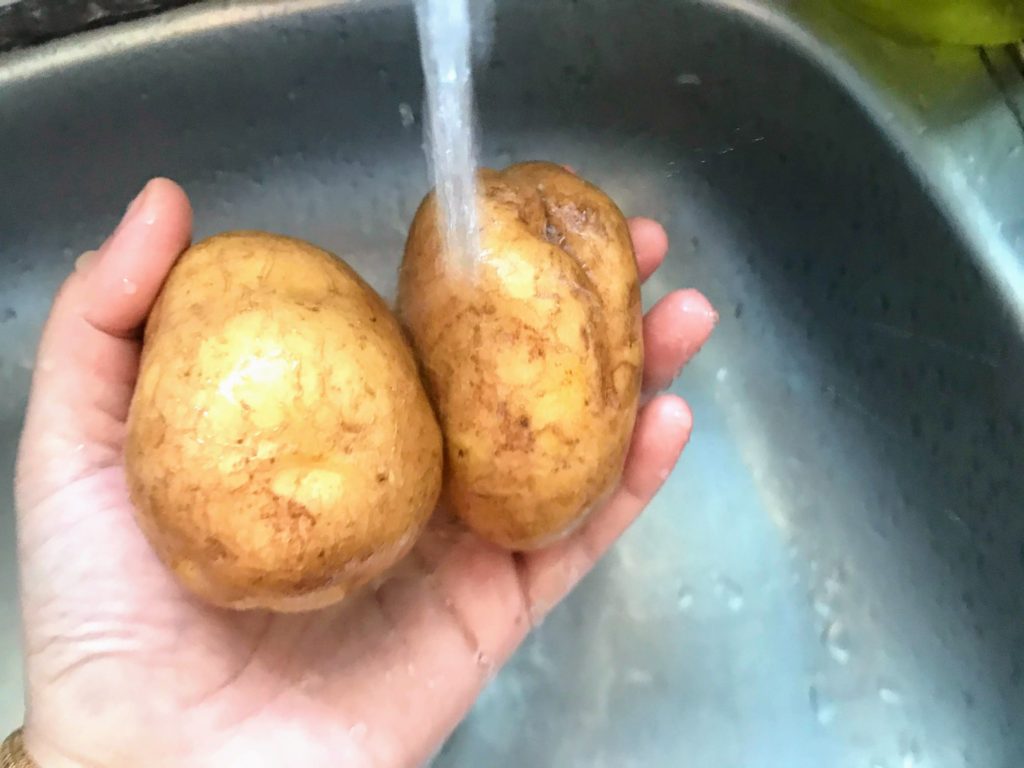
Clean the potatoes under running water.
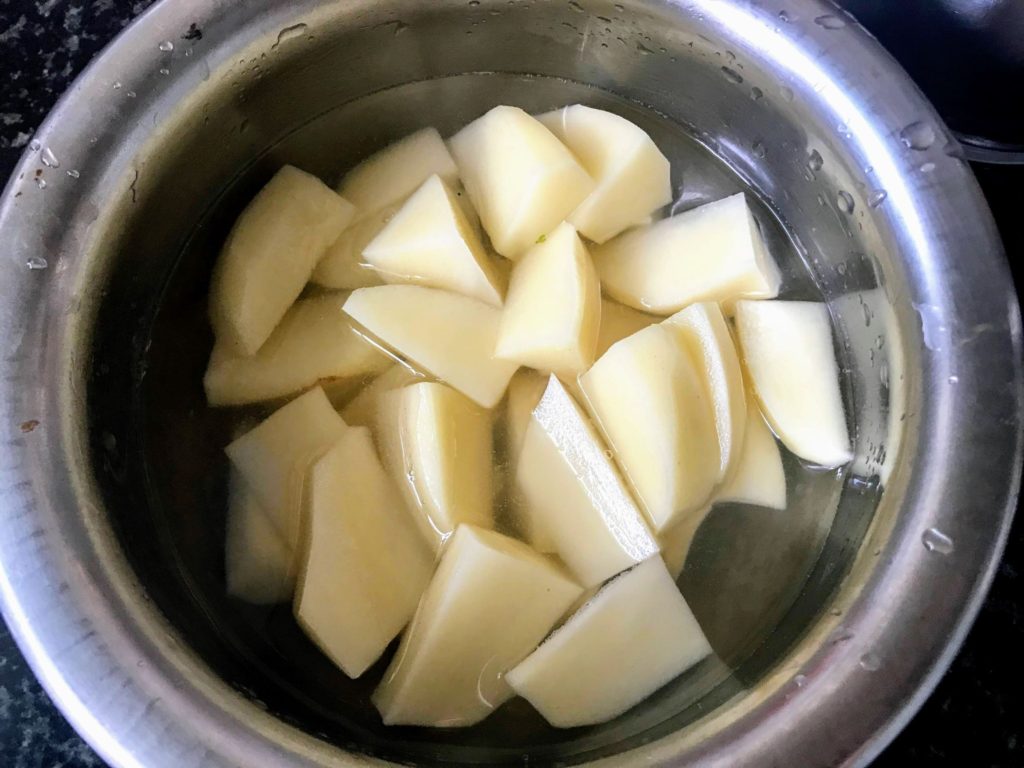
Peel and cut them to half wedges.
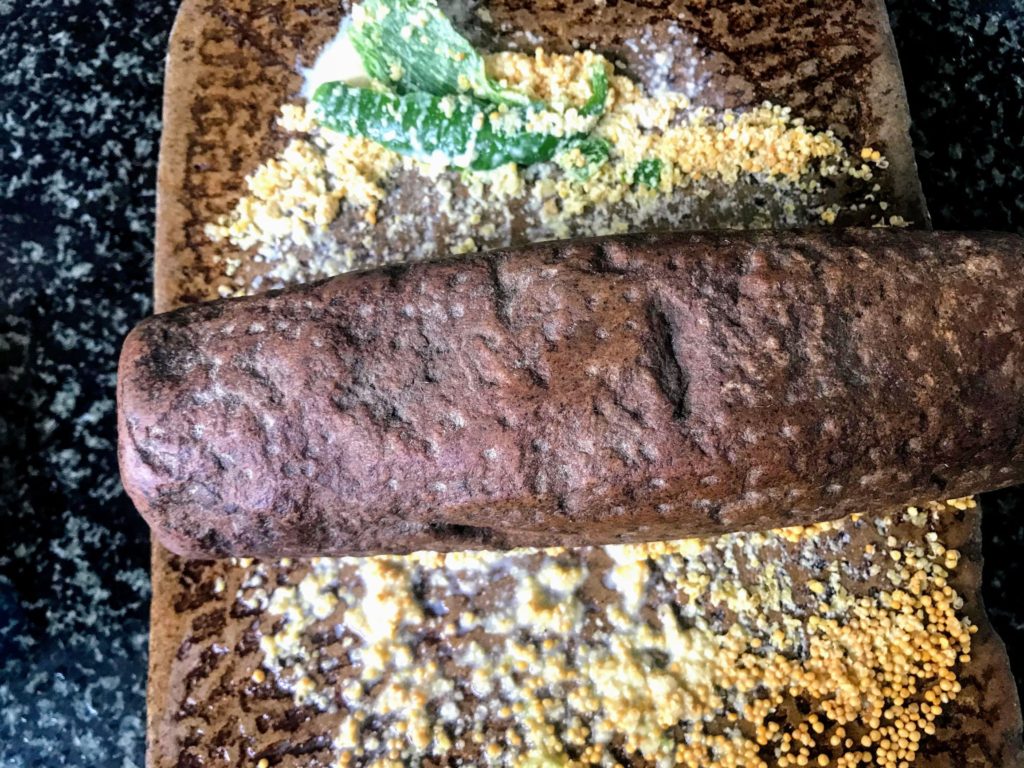
Grind mustard seeds and green chilli to a smooth paste.
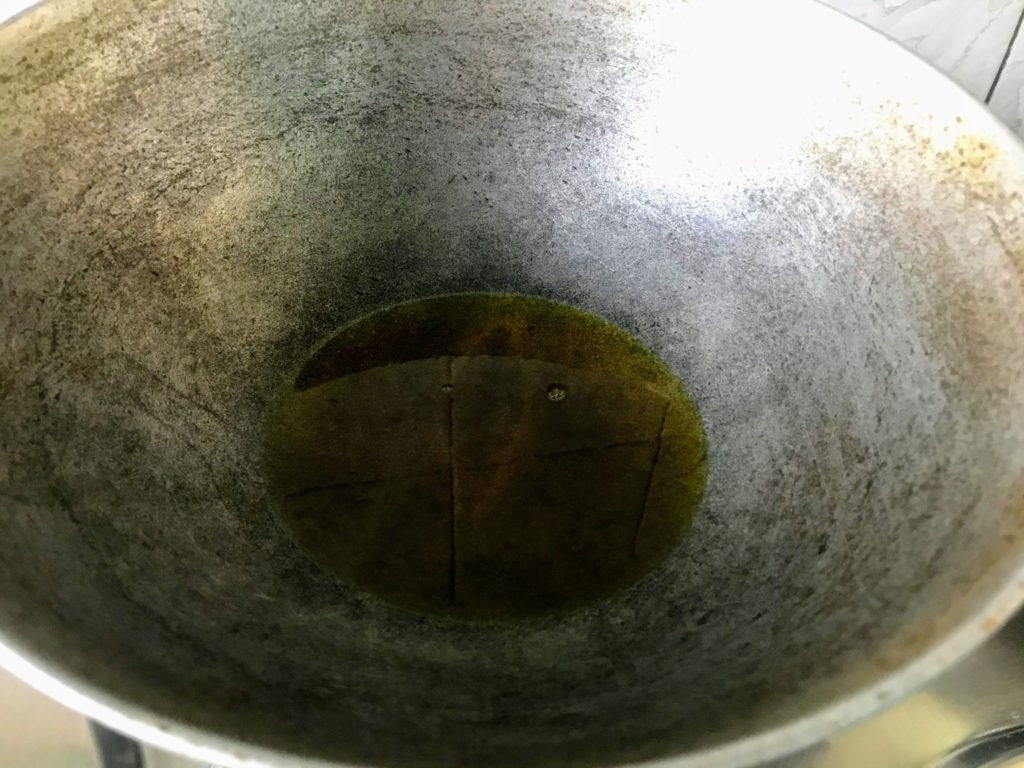
Heat oil in a wok.
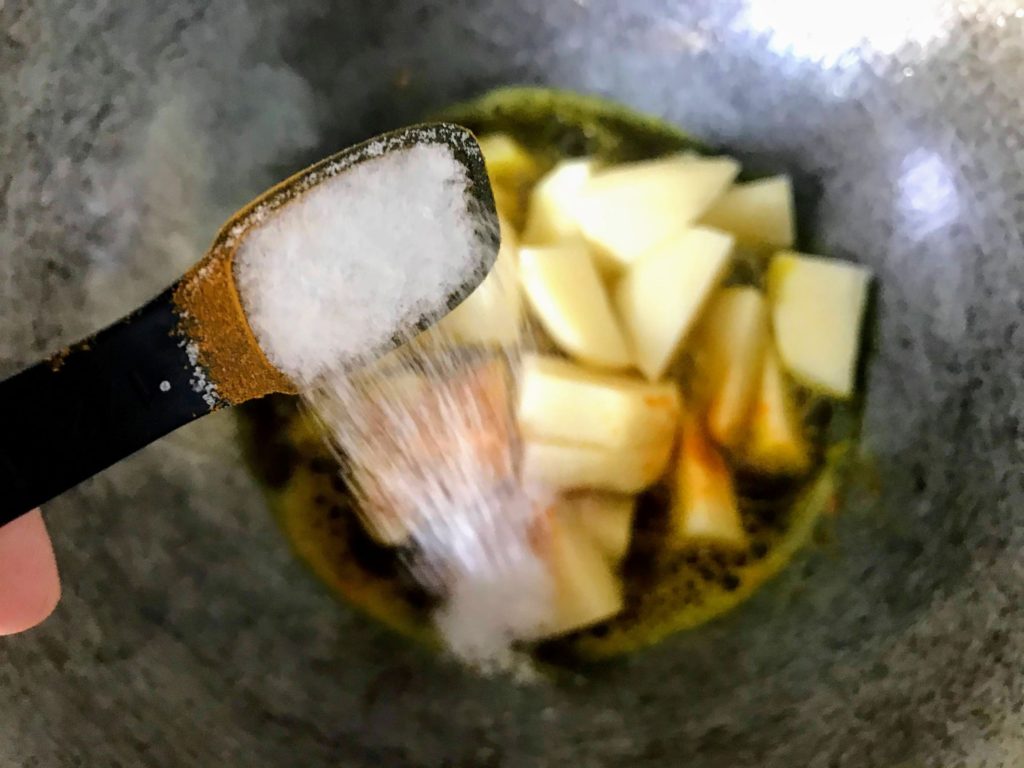
Add the potatoes along with turmeric powder and salt.
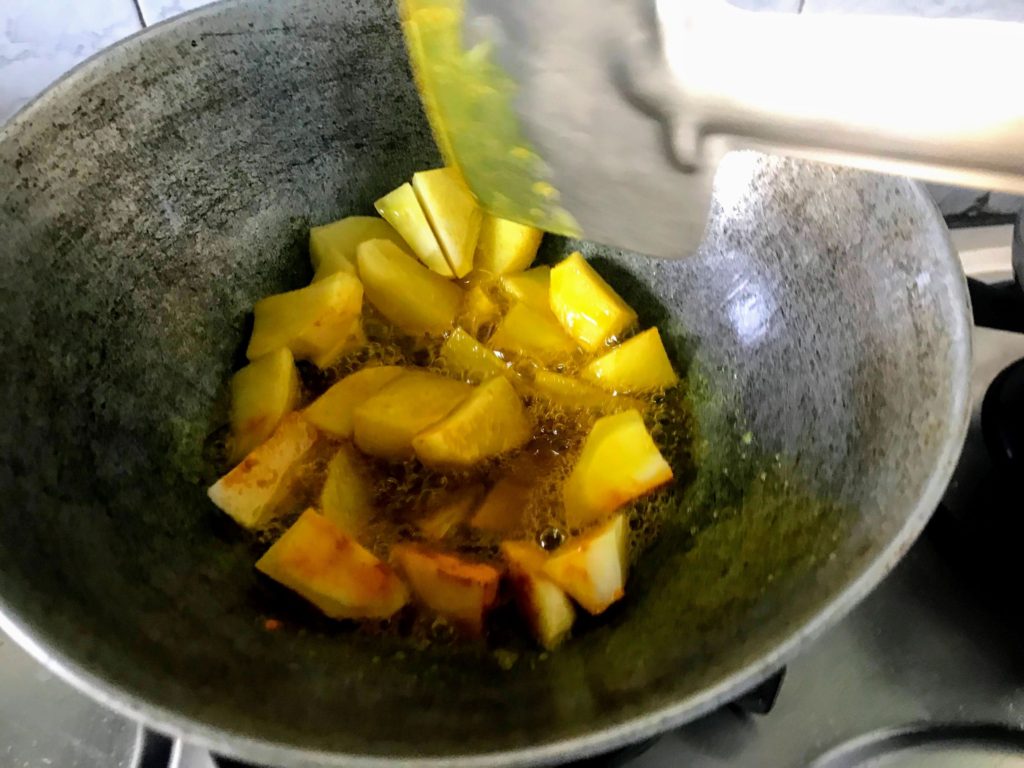
Stir to mix the ingredients and cook the potatoes on sim for 3-4 minutes.
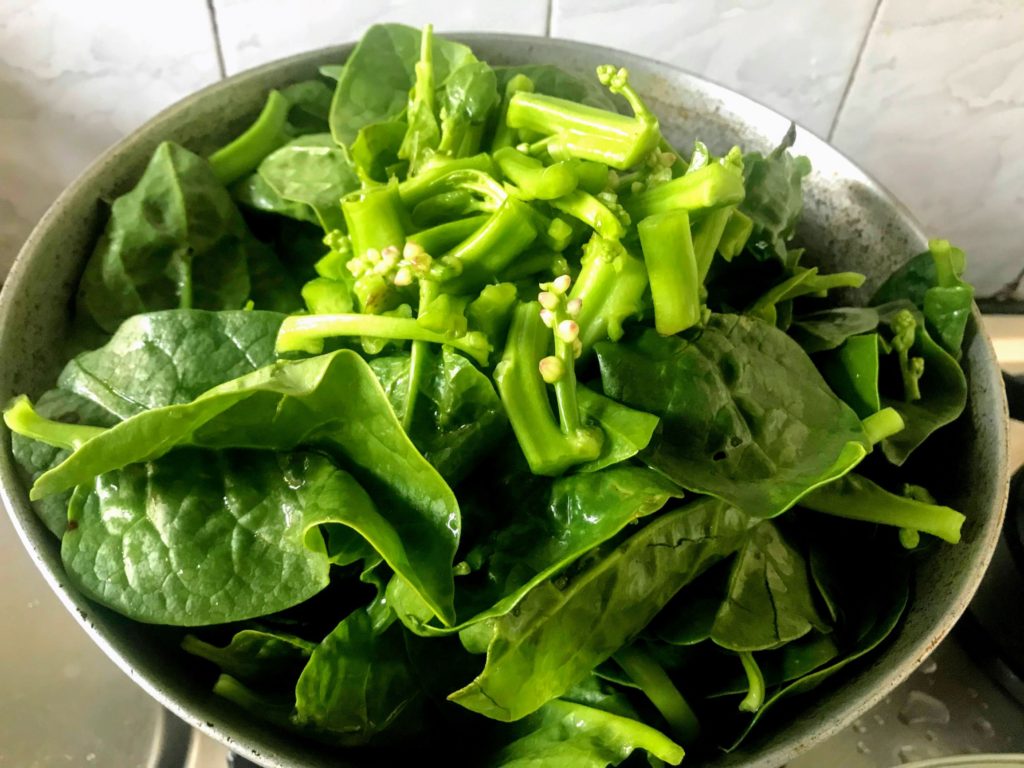
Add the leaves and stalks into the wok.
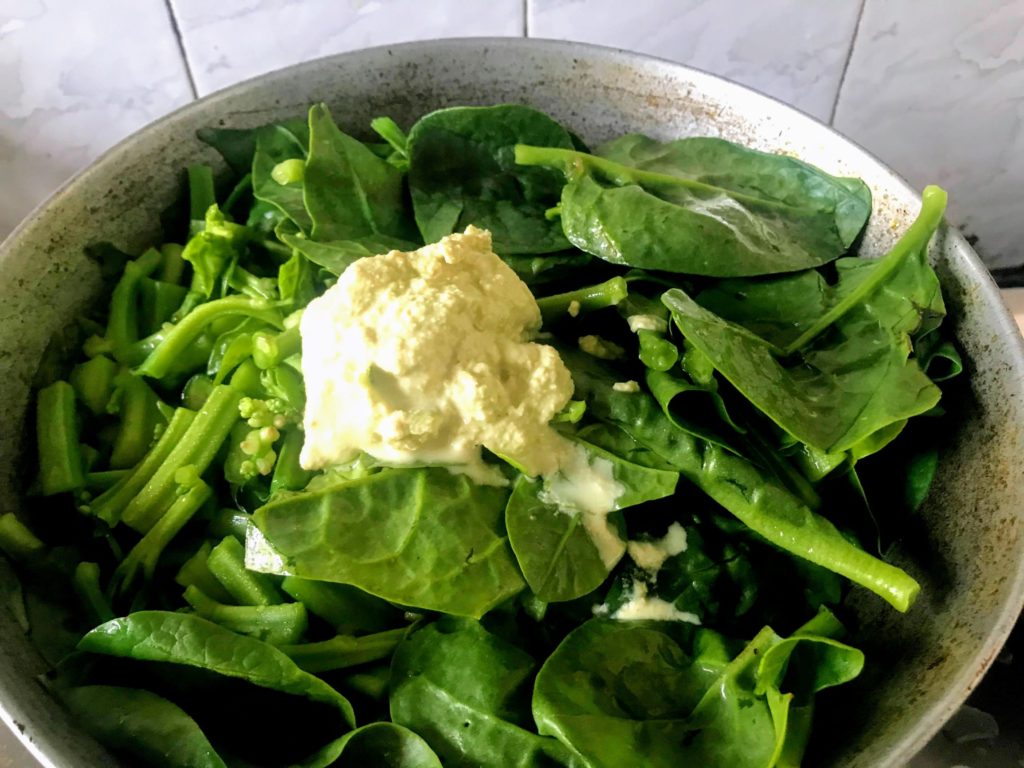
Add the mustard paste.
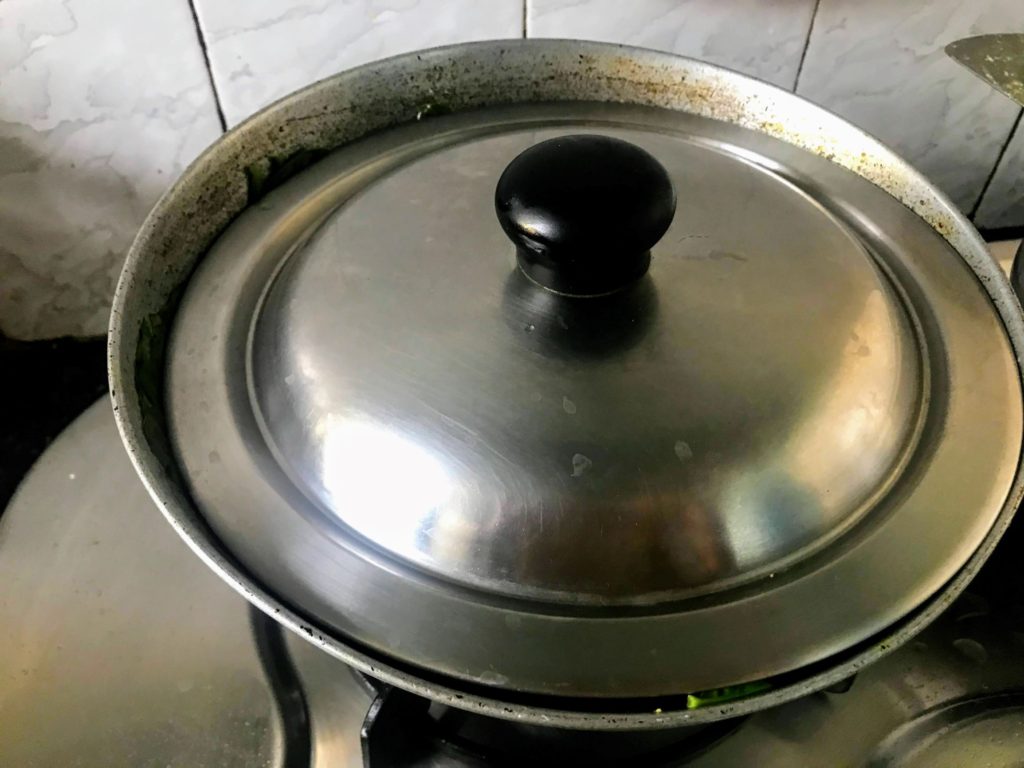
Stir and mix the ingredients and let the vegetables cook on sim.
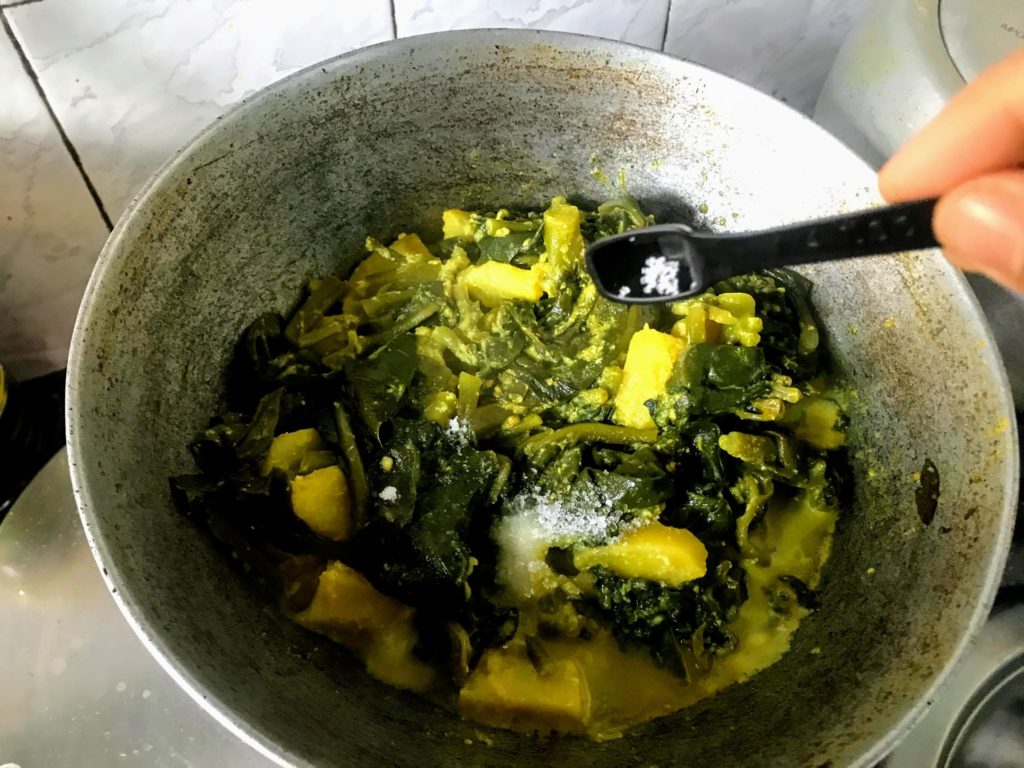
Taste and adjust salt and sugar when the liquid reduces to 20%.
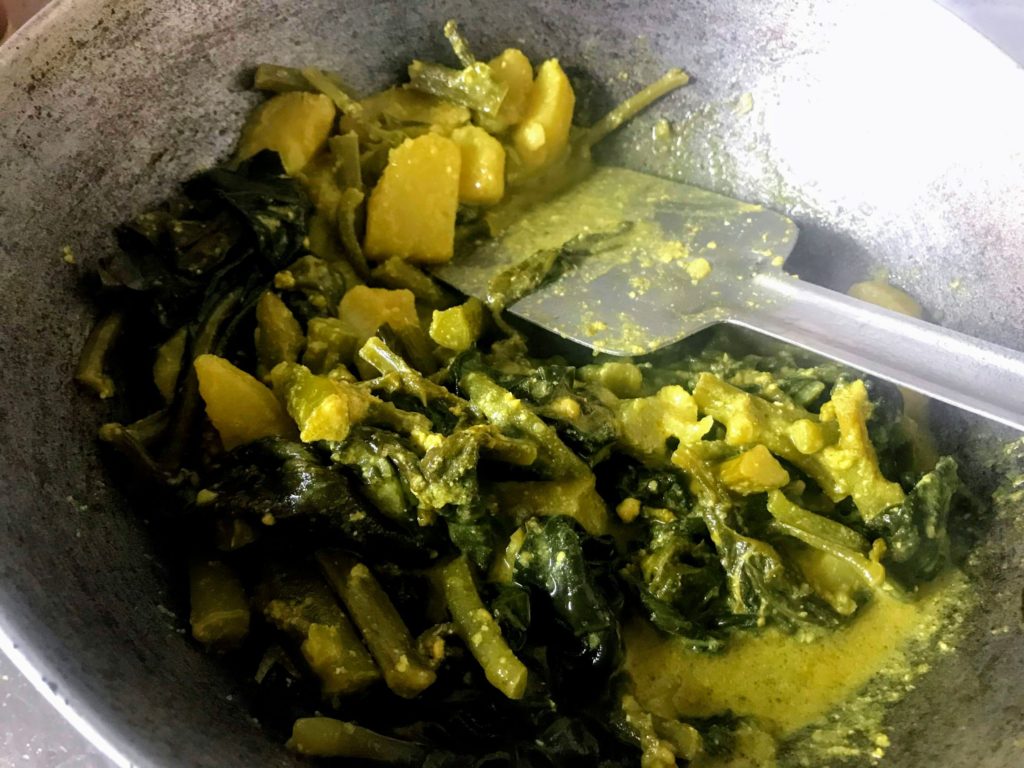
Switch off the flame when the gravy reduces to 10%.
Tips:
- You can use electronic grinder to grind mustard, but the paste might turn bitter
- Just for flavour the potatoes are slightly fried. The flavour of boiled potato wont go well with the dish
- While purchasing, ensure the leaves and stalks are fresh to get a melt in mouth experience
- Adjust the number of chillies depending on the hotness of chilli. If you are a spice lover, you may add more green chillies to the dish
- Savour Shorshe Diye Pui Data Chorchori with steamed rice mixed with lightly flavoured masoor dal or red lentil soup
